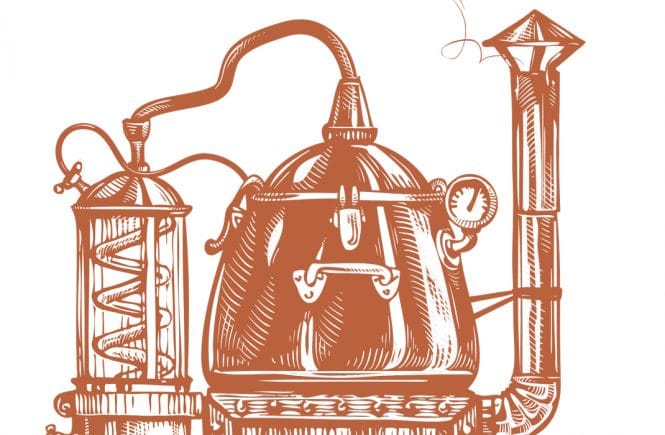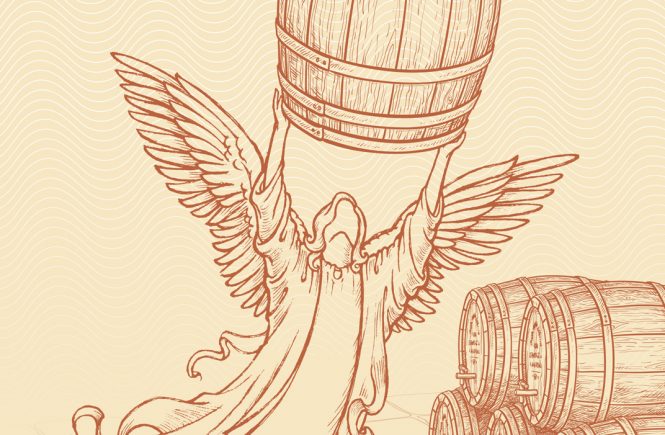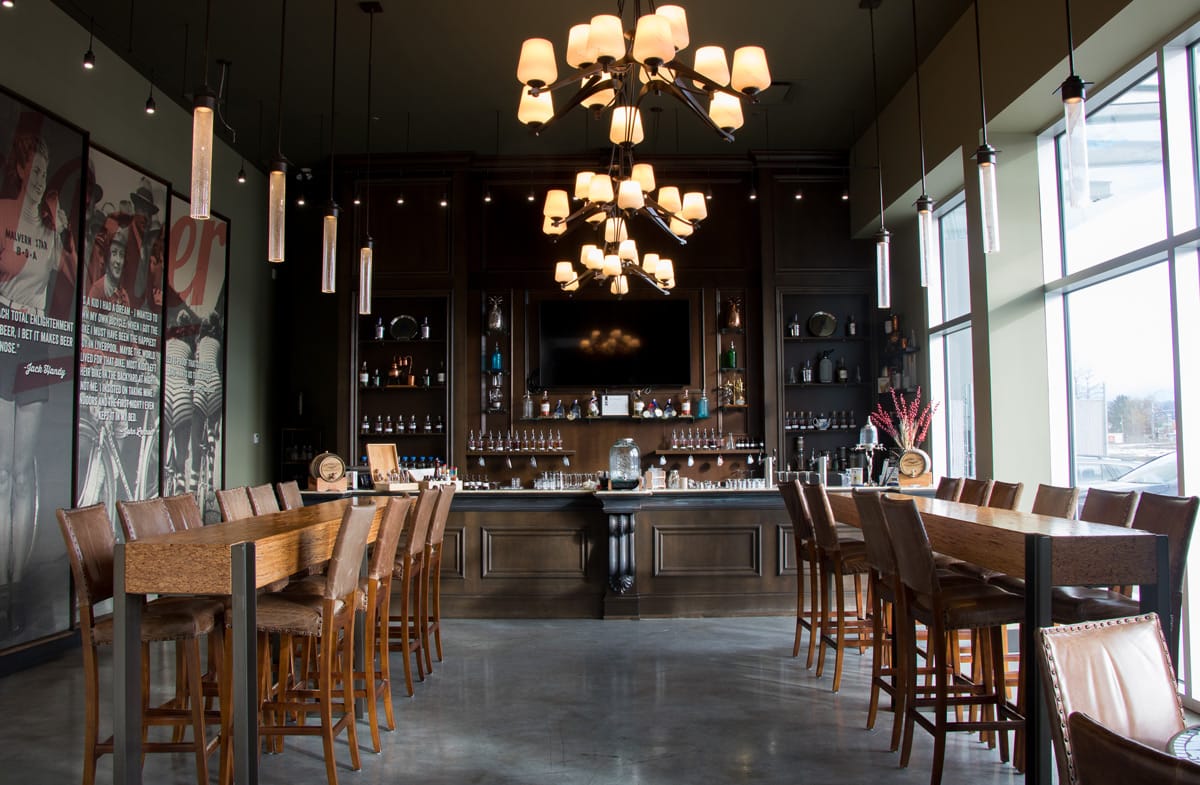Savoury notes are nudging fruit and flowers over on the craft spirits bar, in favour of umami flavours like mushrooms, seaweed, smoke—and even sheep dung
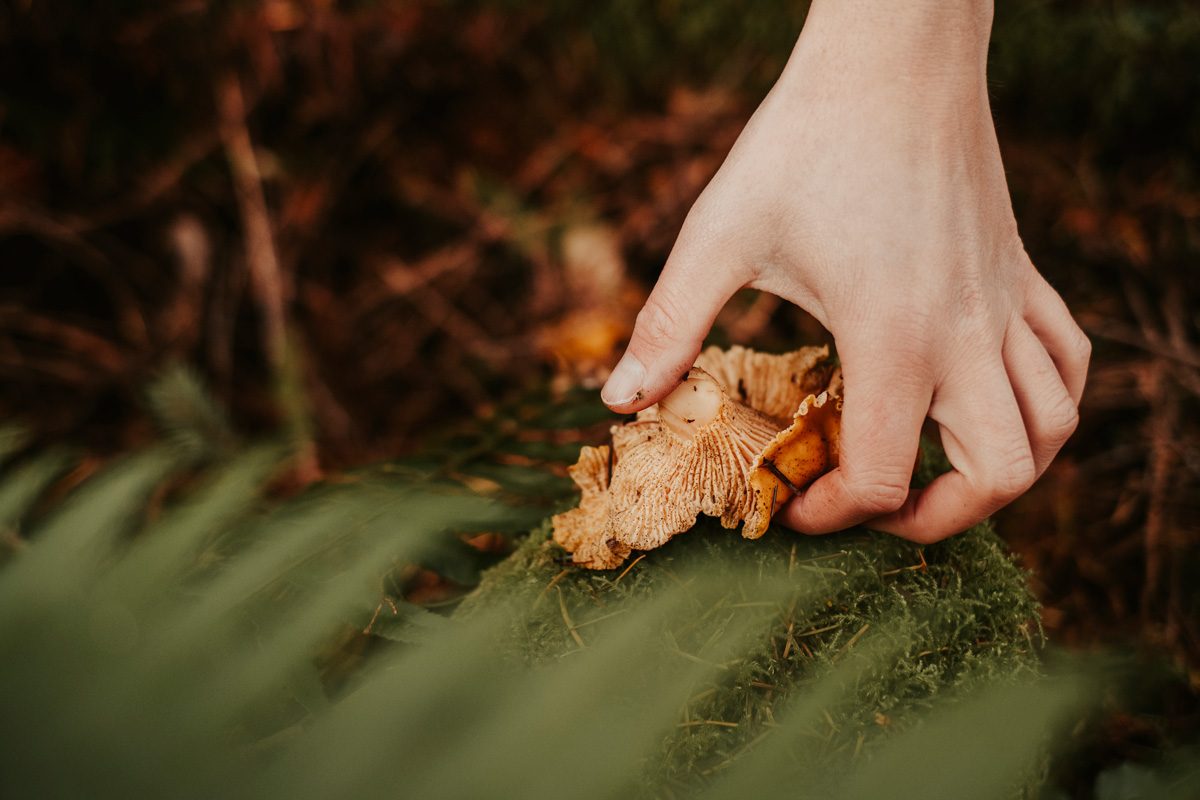
Mushrooms first lit up my brain in 2017, when I tried Candy Cap Magic, a Botanist Bar cocktail that matched the fungi’s maple syrup and spice notes perfectly with rye. Then, in 2019, Sheringham Seaside was named the world’s best contemporary gin on the wings of its sustainable kelp note. After sipping 72 Tomates-kissed Tomato Martinis last summer at hip New York bars, it hit me: the savoury spirits revolution has arrived.
Driving the savoury trend is a quest for ultra-local terroir. When Fort McMurray burned in a 2016 wildfire, Maligne Distillery’s Bryce Parsons and Spike Baker salvaged a pallet of malted barley outside Wood Buffalo Brewing. Already touched with peat smoke during malting, and infused with the fury of the wildfire, it was distilled into whisky. Six years later The Beast, the world’s first forest-fire whisky, developed wild flavours of cherry, tobacco and burnt honey.
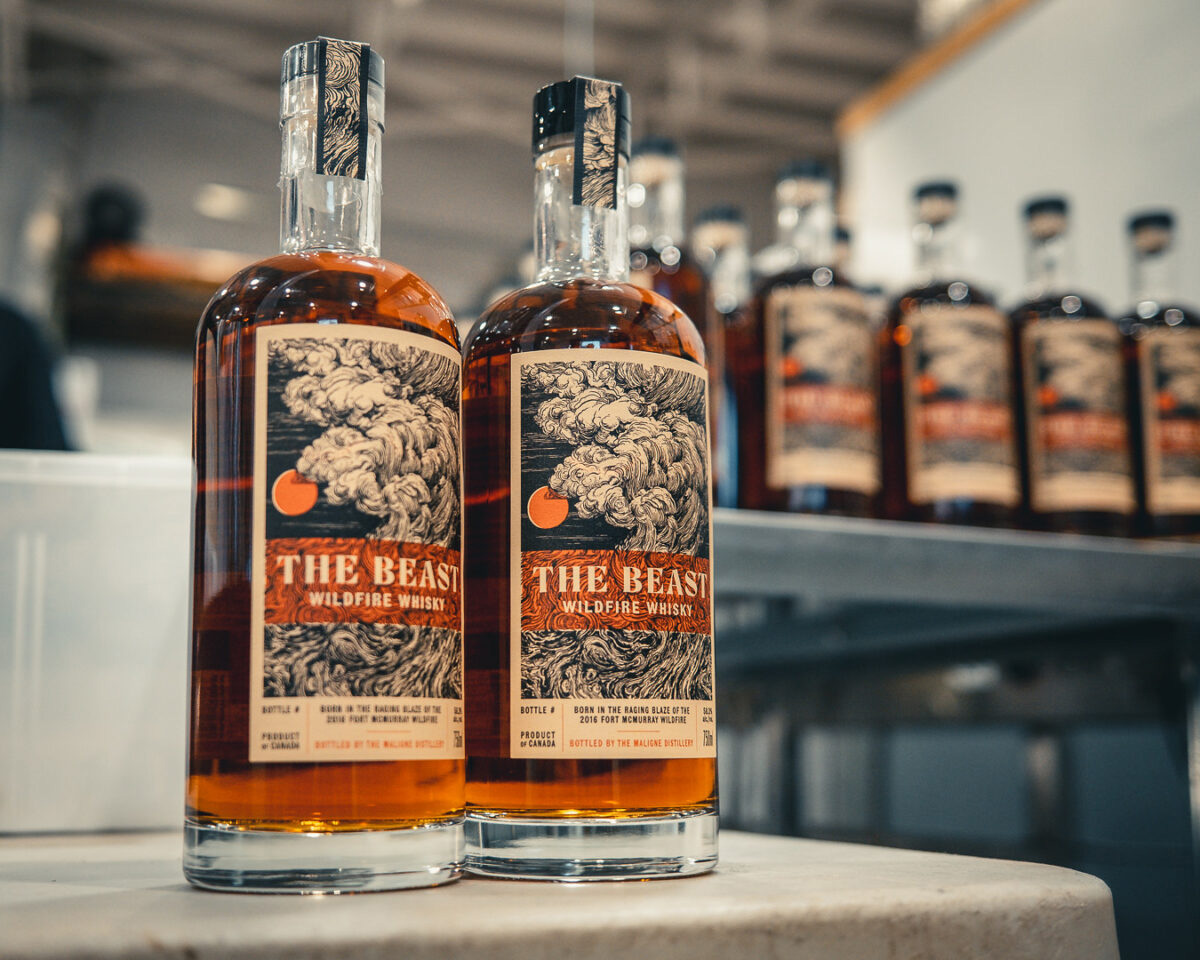
Ontario’s Valley of Mother of God Smoked Gin arose from a happier sort of fire. Founders Malcolm and Shelly Roberts wanted to harness the “transportive effect” of sipping a sensory memory, “and it seemed to us that the smell of wood smoke from a campfire would resonate with Canadians from coast to coast with equally fond childhood memories,” Malcolm Roberts says. Ottawa Valley juniper berries smoked over maple wood create a gin that yields the ultimate Dirty Martini.
Watching bartenders yield Smoking Guns and smoke-infusion cloches over cocktails inspired Black Tusk Smoked Vodka from Squamish’s Raincity Distillery. “We specifically chose [Western Red] cedar to have that local terroir,” says co-founder Alex Mumm, who says it took hundreds of “chaotic” attempts to infuse the essence of burning cedar sawdust into their wheat vodka. The result is a savoury, almost meaty spirit that makes a killer Gibson.
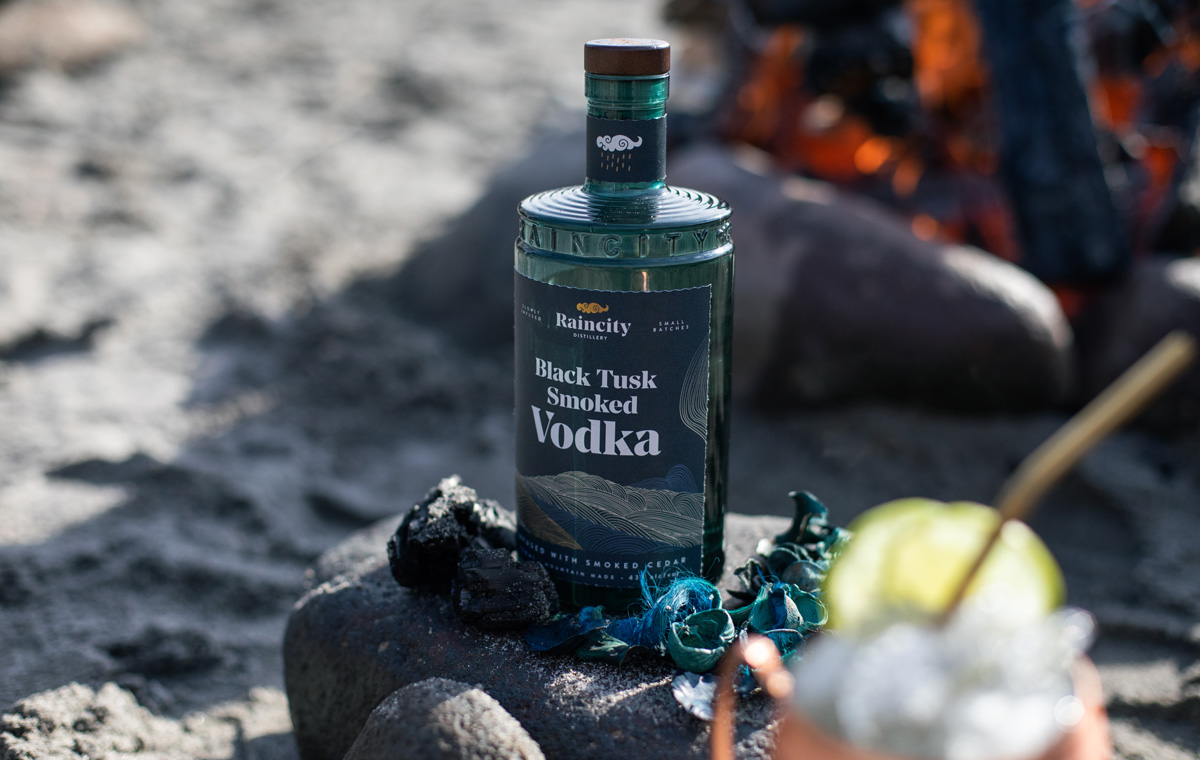
Candy caps aren’t the only mushrooms at the bar. Last year’s release of Bearface Matsutake Whisky was a “gift to the bartender community” from master blender Andres Faustinelli, for its cocktail-candy nut, spice and savoury aromatics. Matsutakes “bring a sensation of the forest floor,” says Faustinelli, who clambered down Monashee Range slopes with a forager to gather the fungi, then macerate them in whisky, “to extract that sensation of freshness.” One of the world’s most expensive mushrooms, matsutake was a signature Canadian flavour to spotlight in Bearface’s Wilderness Series.
Odd Society + Wild Thing Mushroom Whisky was a collab spirit created to celebrate the opening by restaurateurs Todd Graham and Kody Abrams of Wild Thing on Main. The team extracted “a kind of tea” from candy cap and porcini mushrooms sourced from wholesaler Oyster and King, says Odd Society distiller Joel McNichol. That “tea” diluted whisky that was then re-barrelled for further aging. “As someone who enjoys wandering in the rainforest amongst the Pacific Northwest flora, with hopes to stumble across a patch of wild mushrooms, this whisky definitely feels like it fits the commitment to regional style and culture,” says McNicol.
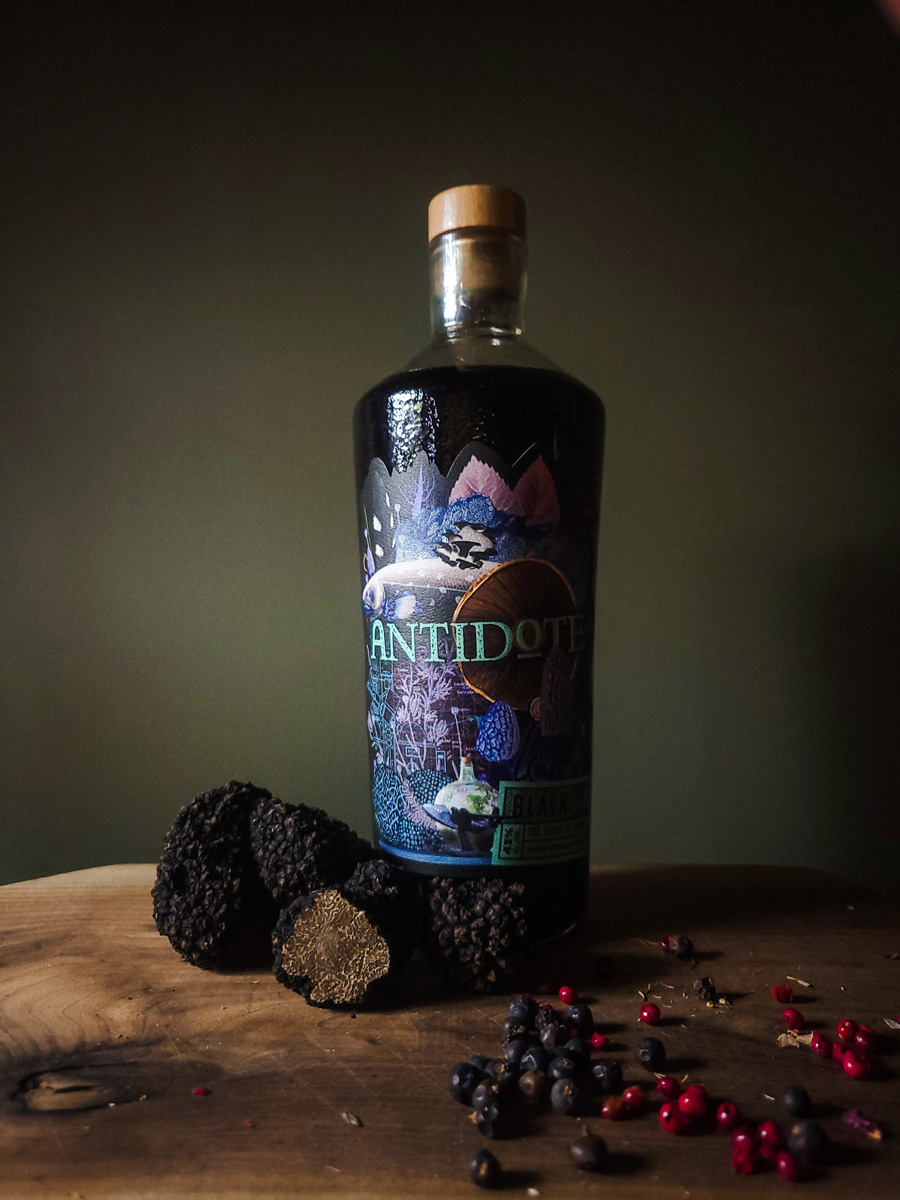
Foragers from Port Alberni’s Tseshaht First Nation and Forest for Dinner helped distiller Nilo Du Plessis from Antidote Distilling Co. search out unique local ingredients for his Black Gin. “We never intended to make a weird and funky gin. I bought a small vacuum still and started distilling literally whatever we could find around us,” he says. A handful of Vancouver Island black truffles, macerated then re-distilled, “came off just so beautifully” they inspired Antidote’s Black Truffle Vodka and colour-changing Black Gin. Inky in the bottle thanks to a “dark, bloody mush” of salal berry skins (a byproduct of Forest for Dinner jam-making), it blooms with purple colour plus funky and herbaceous notes when mixed with tonic and citrus.
“It was all about working with what we had around us on Vancouver Island rather than just going the traditional way,” says Du Plessis. Like these other innovative distillers, he’s savouring the taste of success.
—by Charlene Rooke


